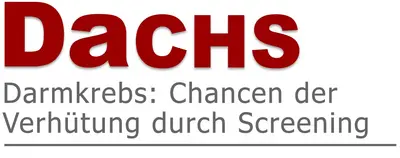Clinical Epidemiology and Aging Research
- Cancer Risk Factors and Prevention

Prof. Dr. Michael Hoffmeister
Provisional head of department, group leader
The Clinical Epidemiology and Aging Research Division’s main areas of research include clinical cancer epidemiology, epidemiology of chronic age-related diseases and epidemiological methods.

Our Research
In the field of clinical cancer epidemiology, the group conducts large-scale epidemiological studies on new avenues of more effective cancer prevention and early detection, and on issues of the quality of medical care, prognosis and quality of life of cancer patients. Further large-scale epidemiological studies focuses on detection of risk factors, risk markers and prognostic factors of cardiovascular disease, diabetes mellitus and arthritis, thereby aiming to explore new avenues of enhanced prevention and management of these common and strongly age-related diseases. Most of the Division’s studies are conducted in interdisciplinary, oftentimes international collaborations with cancer registries, clinical partners and partners from basic research. Apart from the application of the highest methodological standards in these studies, a major area of research conducted in the Division is devoted to further development and enhancement of methods in epidemiological research.
Future Outlook
The Division will expand its research on early detection and screening for colorectal cancer to focus on questions of high relevance to the implementation of early detection programs at the population level.
Future research in early detection and screening will also be directed towards other gastrointestinal cancers. Due to demographic aging, along with steadily increasing cancer survival rates, the number and prevalence of cancer survivors in the population will continue to increase. The Division will therefore intensify its research on additional outcomes, such as quality of life, and the occupational and social participation of cancer survivors. An area of increasing interest in aging research will be to enhance the empirical evidence for preventive and therapeutic interventions in old age. Epidemiological aging research in the Division will increasingly address integrative and functional endpoints that have received comparatively little attention thus far, such as indicators of multi-morbidity and frailty, or indicators of functional limitations, as these are often more relevant for the elderly than single medical diagnoses. The Division will also contribute its expertise in recruitment and follow-up of population-based cohorts, including the areas of clinical epidemiology, aging research and epidemiological methods of the National Cohort, where 200,000 older adults are to be recruited in 2014-2018 and followed up many years afterwards.
Projects

Epidemiologic study assessing chances of prevention and early detection of various chronic diseases including cancer among older adults
Part I
Population-based longitudinal study including about 10,000 older adults
More about ESTHER (German only)

Population-based case-control study on changes of prevention in colorectal cancer by endoscopic screening examinations

The PEARL study is a large, nationwide study from Germany that specifically investigates the risk factors of colorectal cancer in the age group below 50 years.

Accompanying evaluation of innovative tests for early detection of colorectal cancer

The aim of the study is a detailed tattoo exposure assessment in the NAKO to estimate potential tattoo-related long-term health risks, in particular the risk of lymphoma and skin cancer.

Longitudinal study with follow-up of about 10,000 patients undergoing screening colonoscopy for up to 15 years.

Personalized Vitamin D Supplementation for Reducing or Preventing Fatique and Enhancing Quality of Life of Patients with Colorectal Tumor: Randomized Intervention Trial.

MIRANDA study (German name: “Mit dabei: Reha nach Darmkrebs”)

Lower gastrointestinal symptom burden by prophylaxis with synbiotics after colorectal cancer surgery (LEONORA)

The DKFZ and the Saarländischen Ministerium für Arbeit, Soziales, Frauen und Gesundheit are hosting the NAKO study center Saarbrücken (PI: Prof. Hermann Brenner/ Prof, Ute Mons, CO-PI: PD Bernd Holleczek).

Lung Cancer-related risk factors and their Impact Assessment
The aim of MOCCA ist to exmaine gender-specific differences in colorectal cancer screening

Optimization of polypharmacy in geriatric oncology
Detecting colon cancer earlier through innovative testing procedures

Improving diabetes care in general practice: randomized trial and prospective cohort study

Longitudinal study assessing determinants of long term prognosis after in-patient rehabilitation and possibilities to improve secondary prevention among patients with coronary heart disease
Team
- Show profile

Prof. Dr. Michael Hoffmeister
Provisional head of department, group leader
-

Evelyn Nizik
Secretary
Selected Publications
Brenner H, Heisser T, Cardoso R, Hoffmeister M
Cardoso R, Guo F, Heisser T, ..., Ryzhov A, Hoffmeister M, Brenner H.
Heisser T, Peng L, Weigl K, Hoffmeister M, Brenner H.
Brenner H, Calderazzo S, Seufferlein T, Ludwig L, Dikopoulos N, Mangold J, Böck W, Stolz T, Eisenbach T, Block T, Kopp-Schneider A, Czock D, Tikk K.
Awards
2025
H.Brenner, M. Hoffmeister, T. Heißer, I. Ola, D. Sergeev, T. Seum, Darmkrebs-Präventionspreis der Stiftung Lebensblicke
Downloads
On this page we provide resources for download that have been developed by members of our divison or that we refer to in publications.
Get in touch with us

Evelyn Nizik
SecretaryPostal address: